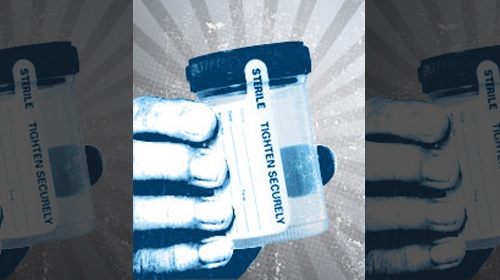Victory! Federal Judge Rules Against Drug Testing of Florida's State Workers


Two months ago, I was sitting in a federal courtroom in Miami watching as our staff attorney, Shalini Goel Agarwal, argued for the rights of Florida state workers against invasive, suspicionless mandatory bodily-fluid searches. The ACLU of Florida, on behalf of the American Federation of State, County and Municipal Employees (AFSCME), was challenging an executive order issued by Gov. Rick Scott requiring random drug testing for state employees.
Today, in that case affirming the privacy and personal dignity of thousands of state employees by declaring the order a violation of the Fourth Amendment. Without a "compelling need," a search of your bodily fluids is exactly the kind of unreasonable search and seizure the Constitution clearly bars.
In her ruling, judge Ursula Ungaro wrote:
[T]he Court searches in vain for any similarly compelling need for testing. The EO [Executive Order] does not identify a concrete danger that must be addressed by suspicionless drug-testing of state employees, and the Governor shows no evidence of a drug use problem at the covered agencies.
The judge's order couldn't have made the lack of a compelling need for these kind of invasive searches more clear. But a lack of compelling need hasn't stopped Florida from launching suspicionless drug test programs.
The Florida government seems to have a weird urinalysis fixation. In 2011, the legislature passed a law requiring suspicionless drug tests for all applicants for the state's Temporary Assistance for Needy Families (TANF) program. And earlier this year, the legislature passed a law that expanded the scope of the drug testing program beyond Gov. Scott's order, allowing for random testing of up to 10 percent of employees in some state agencies every three months.
But the ACLU of Florida has responded quickly to these threats. In the case of the TANF applicants, we sued on behalf of single father and Navy veteran Luis Lebron, and stopping those tests from going forward (and, in so doing, discovered that the state was actually losing tens of thousands of dollars on the program that was supposed to save taxpayers money).
As for the law that the legislature passed this year? Well, with today's order so clearly underscoring the bright line which the government can't cross, we hope that state agencies think long and hard before taking up the legislature's invitation to waste more taxpayer money defending an unconstitutional program.
When I was in the courtroom watching the arguments made by the governor's attorneys, I was struck by how similar the arguments sounded to the ones that were made in defense of drug testing for TANF applicants – drugs are bad, we have an obligation to make sure people aren't wasting their money on drugs. It's almost as if they believe the stigma that these laws create: that poor people or state employees are almost certainly drug-users and should be treated like suspected criminals. But today's decision clearly shows that you can't search people based on stigma alone.
The governor has already said he plans to appeal today's decision. The war on Florida's bladders, it seems, will go on.
But in today's battle, we scored one for the Fourth Amendment and the rights and dignity of state workers.
Learn more about drug testing: Sign up for breaking news alerts, , and .
